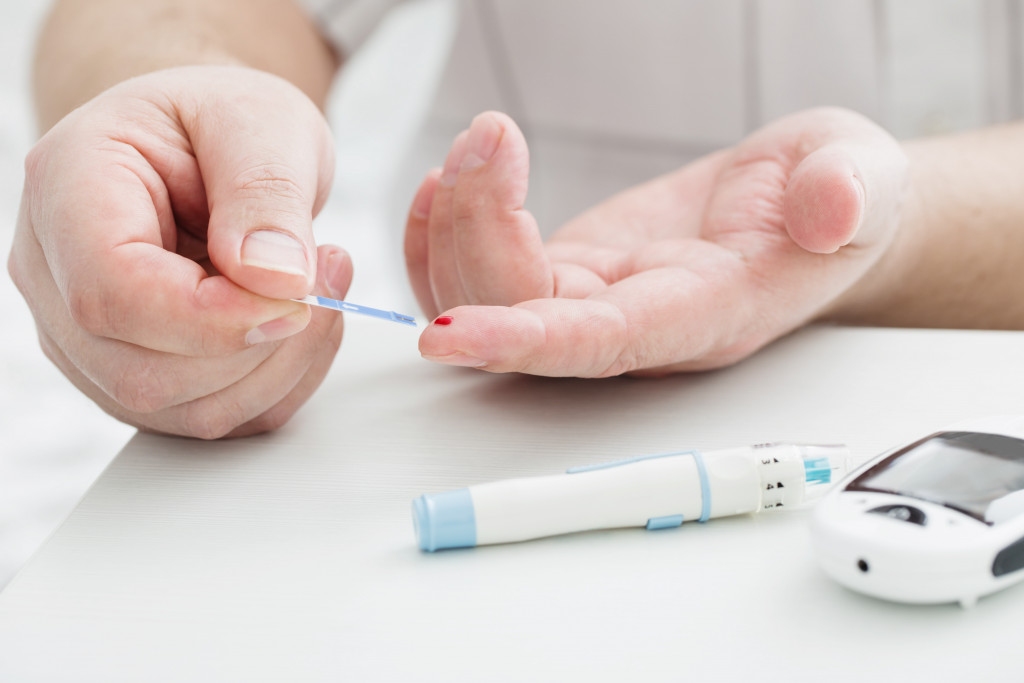As a woman, keeping tabs on your health to be as proactive as possible about your well-being is important. To help you out, we’ve put together a list of five essential health checks for women before they hit 40.
Get a Mammogram Every Year
Every woman must get a mammogram every year starting at 40. This simple test can save your life by catching breast cancer early when it’s most treatable. If you’re under 40 and have a family history of breast cancer, you may need to talk to your doctor about when you should start getting them.
Mammograms are the best way to detect breast cancer early when it’s most treatable. And doing this yearly can help save your life. The procedure is also quick and easy, and they’re usually covered by insurance. Make an appointment for your mammogram today, especially if you’re about to hit 40. They’re an important part of staying healthy and keeping your breasts cancer-free.
Have a Pap Smear Every Three Years
One of the best things you can do for your health is to have a Pap smear every three years. A Pap smear is a simple test that can detect changes in the cells of your cervix that can be early signs of cancer. The good news is that when caught early, cervical cancer is highly treatable. It’s one of the most preventable types of cancer. That’s why it’s important to ensure you get a Pap smear regularly. It’s quick, painless, and could save your life.
Have a Pelvic Exam Every Year
You know you should visit the dentist every six months and the doctor for an annual physical. Still, there’s another health appointment you shouldn’t skip: your yearly pelvic exam. This exam is important for detecting gynecologic cancer early when it’s most treatable. Even if you’re not sexually active, you should still have a pelvic exam to check for abnormalities like ovarian cysts.
Don’t worry. The exam is nothing to be embarrassed about—your Obgyn or other healthcare provider is a professional who’s seen it all before! So make sure to schedule your yearly pelvic exam—it could be the most important thing you do for your health all year.

Check Your Cholesterol Levels and Get Them Under Control if Necessary
Your cholesterol levels are important indicators of your overall health. High cholesterol can increase your risk of heart disease, stroke, and other serious health problems. However, it’s easy to control your cholesterol with your doctor’s help.
Many treatment options are available, and many people can lower their cholesterol levels through lifestyle changes, such as diet and exercise. While your doctor may prescribe you proper medications, it is still important that you watch what you eat and get regular exercise. This will help ensure that your cholesterol levels stay under control. Start incorporating fruits and vegetables into your diet, and aim for at least 30 minutes of exercise most days of the week.
See an Orthopedic to Check for Bone Density
As you age, your bones may start to deteriorate. This is especially true for women at a higher risk for developing osteoporosis than men. Osteoporosis is a serious condition that can lead to fractures and other health problems. But the good news is that it’s preventable with early detection. By getting a bone density test, you can find out if you have osteoporosis or are at risk for developing it.
Another bone issue is scoliosis. You may be unaware that you have scoliosis, but if you have a family history, you most likely have it. Fortunately, there are treatments available to help prevent scoliosis from getting worse. A simple X-ray can confirm this.
If you have scoliosis, your doctor will recommend that you undergo a scoliosis private treatment to prevent the condition from worsening. Here you can undergo therapy to help improve your posture, strengthen the muscles around your spine, and manage pain.
Update Your HPV and Flu Vaccines
Vaccinations are one of the simplest and most effective ways to protect your health. They work by helping your body build up immunity to diseases, so you’re less likely to get sick if exposed to them. There are vaccinations for all sorts of diseases, from the flu to HPV. And it’s important to make sure you’re up-to-date on all of them. The human papillomavirus, or HPV vaccine, will help protect you against the types of HPV that can cause cervical cancer.
On the other hand, the flu vaccine is important for everyone. Even if you’re healthy and don’t think you’ll get the flu, it’s always better to be safe than sorry, especially at your age. This vaccine should be taken every year, so make sure to schedule an appointment with your doctor to get it.
These are just a few things you can do to keep yourself healthy and prevent cancer. So make an appointment for your mammogram today, and schedule that Pap smear and pelvic exam. And don’t forget to see your doctor for a check-up at least once a year. You’ll be glad you did!



